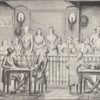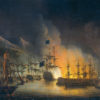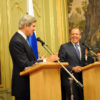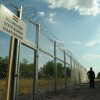Author Archive: Beatrice de Graaf

Drama at the summit
The success of high-level summits depends on sober, levelheaded work done by experts behind the scenes. This diplomatic mechanism was first tried and tested with the ambassadorial conferences of the 19th century and runs counter to today’s twitter diplomacy.
Read more
Louisa’s journey. A Lady on the Road to Peace
How did contemporaries experience the transition from the insecurities of the Napoleonic Wars towards the emergence of European peace? This blog tries to picture that transition by following a lone lady on the road from St Petersburg to Paris in the Winter of 1815.
Read more
The Price of Security. The Dilemma of Paying for Peace (in 1818 and 1919)
The price of peace may be high. Versailles (1919) tells us all about costly peace treaties; Aachen (1818), on the contrary, showcases a security/finance trade-off that actually worked.
Read more
Rumour has it. Fake news in 1815
The fake news that went around in Paris in 1815 shows how authorities tried to ‘read’ rumours and struggled to get an insecure society back in check.
Read more
For the Benefit of All Mankind. A Blueprint of European Peace and Security after 1815
In times of turmoil, it is good to have leaders with a vision, preferably a vision for peace and prosperity. Following a preponderance of perils – protracted warfare, brigandry, plagues and destroyed harvests – leading statesmen from Europe and beyond convened after 1814 to discuss the creation of a new world order. Within this order,…
Read more
Drudging Diplomacy. Appreciating Multilateralism
John Kerry should win the Nobel Peace Prize this year. Diplomats behind the scenes are overlooked, but throughout the modern era, they are the ones that keep multilateral diplomacy alive.
Read more
The Never-Ending Search for the Radical Profile – and the Loss of the Person Behind It
This blog offers a short genealogy of centralized practices of registration and identification, asking in the process whether the emergence of risk profiles has not obscured the person behind the profile.
Read more
Seeing Security
Security marks the lands. In post-Napoleonic Europe, forts were constructed to give shape to a new sense of security on the continent. Markers of security became increasingly invisible, but the present-day refugee crisis and war in Ukraine have reversed this process.
Read more



